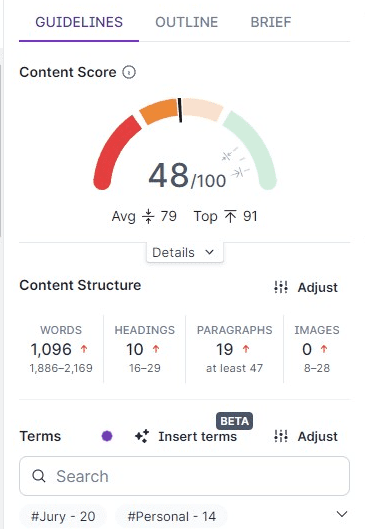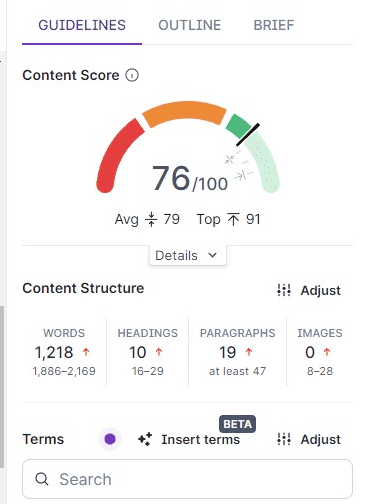People who have suffered pain or injury caused by negligence or intentional actions of another are awarded monetary compensation for personal injury damages. A variety of losses are covered by these damages, including property damage, lost pay, medical costs, and pain and suffering.
They are a vital resource for helping wounded individuals heal and reintegrate into society.
This article examines the many categories of personal injury claims and emphasizes their significance in assisting victims in receiving justice and recovering from their injuries.

What are Personal Injury Damages?
Personal injury damages are the monetary awards given to people who have been hurt or injured due to the carelessness or intentional conduct of another. By addressing both the financial and non-financial aspects of the victims’ suffering, these damages are intended to assist them in getting over the numerous losses they may have suffered.
- Medical fees: Medical charges comprise a significant portion of a personal injury claim. This pays for hospital stays, surgeries, prescription drugs, medical equipment, aftercare, and continuing medical requirements. The aim of personal injury damages is to ensure that victims receive the necessary medical care for any injuries caused without paying for it.
- Lost Wages: The patient may receive compensation for lost wages if the injury prevents them from working or makes it difficult to make a living. This component of damages recognizes how the accident has affected their ability to generate money both now and in the future.
- Pain and Suffering: Non-economic losses like pain and suffering are included in personal injury damages. This category aims to alleviate the victim’s suffering by acknowledging the physical and emotional agony they have endured.
- Property Damage: Damages may be sufficient to pay for replacement or repair expenses when an injury incidence results in damage to personal property, such as a car in an auto accident.
- Loss of Consortium: The effects on interpersonal connections are covered in this category. Due to the lower quality of life, they suffer as a result of the injury, spouses or family members may be eligible for compensation.
- Punitive Damages: These may be awarded in situations involving egregious negligence or deliberate injury. These work to penalize the offending person and discourage similar behavior in the future.
Comprehending the diverse classifications of personal injury damages is crucial for both plaintiffs and defendants seeking compensation. It guarantees a thorough handling of the monetary components of recovery and pain compensation, offering a way to reconstruct lives and pursue justice in the face of misfortune.
Types of Personal Injury Damages
Three primary categories exist for personal injury damages: Exemplary or Punitive Damages, General Damages, and Special Damages. For the aim of compensating accident sufferers, each kind has a different function.
Compensation Damages Or Special Damages:
Damages are precise, measurable losses the sufferer sustains due to the injury. These consist of:
Medical Expenses: Payment for medical expenses, including visits to the doctor, operations, prescription drugs, therapy, and equipment. For instance, in a car accident resulting in a broken limb, hospital expenditures, physical therapy charges, and medication expenses would all be covered by special damages.
Lost Wages: Reimbursement for money lost to illness or a diminished ability to work. For example, if an individual’s injuries prevent them from working for a month, special damages would cover their lost income.
General Damages:
Non-economic damages, often general ones, compensate for less concrete, non-monetary losses. These consist of:
Pain and Suffering: Restitution for the anguish that the injury has caused, both physically and psychologically. One instance is the persistent psychological distress felt by an accident victim who has sustained significant injuries.
Loss of Consortium: This refers to the breakdown of interpersonal bonds brought on by the injury, such as a spouse’s diminished capacity to enjoy life with their family or their spouse’s loss of companionship.
Exemplary or punitive damages are paid to deter future wrongdoing and as a form of punishment for extremely careless or purposeful actions. Instances are situations where a business purposefully releases a hazardous product that causes serious harm. To deter similar conduct and pursue justice in addition to monetary compensation for the victim, the court may award punitive damages.
It is essential to comprehend these personal injury damages to guarantee that sufferers obtain just compensation and that individuals who caused the injuries are held legally accountable, particularly in situations involving egregious negligence or deliberate harm.
How to Calculate Personal Injury Damages
In a personal injury lawsuit, determining damages requires thoroughly evaluating non-economic and economic losses. The quantifiable expenses, such as medical bills and missed earnings, are totaled to determine special damages, necessitating extensive documentation and, if required, expert testimony. Pain and suffering are included in general damages, which are more arbitrary and usually computed as a multiple of special damages.
The severity of the damage, its long-term effects, and the legal requirements of the jurisdiction are some of the variables that affect the multiplier.
The court weighs the defendant’s deliberate misconduct or wilful carelessness when determining exemplary damages. In general, the computation aims to offer equitable recompense while considering the particularities of every instance.
Recommended Article: Average Payout for Medical Negligence Resulting in Death
Frequently Asked Questions (FAQs) – Personal Injury Damages
Will I need a medical examination to file a personal injury claim?
Indeed, getting a medical evaluation is usually necessary when filing a personal injury case. Medical records provide vital evidence for your personal injury claim by assisting in determining the amount of your serious injuries and how they relate to the accident.
How long will my claim for personal injury damages take?
While the time varies, the resolution process may take months or even years. It depends on several variables, including the intricacy of the case, the court proceedings, the negotiations, and the backlog of cases in your jurisdiction.
What will I need to prove for a successful personal injury case?
You must show that someone’s carelessness or deliberate activities resulted in your injury to prevail. Often it comes to proving the other party’s negligence and how it led to injuries sustained. This entails proving the defendant had an obligation of care to you, that obligation was broken, and that the defendant’s actions directly caused your harm and any emotional distress, mental anguish, physical disfigurement, physical injuries, or even wrongful death. For a claim to be successful, gathering witnesses, evidence, and expert testimony is essential.
Pursuing Compensatory Damages
To sum up, seeking financial compensation for personal injury cases is crucial for healing and justice, and we can assist you with that. As an expert personal injury attorney, we can help the injured person seek compensatory damages and fair compensation for your injury claim. Coluccio Law will help injured parties seek compensation from the parties legally responsible as well as the insurance company. Economic damages such as reduced earning capacity, out-of-pocket expenses, medical treatment, and future medical care will all factor into determining a specific monetary value and damage award.
For a free consultation and more information, personal injury victims or their families can give Coluccio Law a call today. We can help you pursue the compensation you are entitled to for your injuries.
Our experienced personal injury lawyer Kevin Coluccio and his team are committed to guiding you through the intricacies of your case and obtaining the money you require for a more straightforward recuperation process.
Initial Score:

Post CF Edit Score





